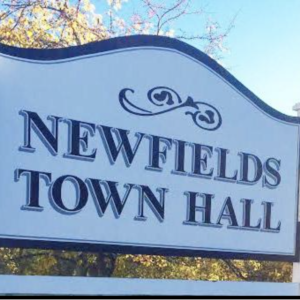A prominent New England civil rights attorney and free speech advocate tells NHJournal the Newfields ordinance banning protests on public streets outside Gov. Chris Sununu’s home is “clearly unconstitutional.” His comments came in response to state and local police confronting a small group of protesters Monday night and ticketing an NHJournal reporter attempting to cover the event.
“The ordinance is clearly unconstitutional under the First Amendment,” says Harvey Silverglate, who served on the board of the Massachusetts chapter of the American Civil Liberties Union and is the co-founder of the free speech organization Foundation for Individual Rights in Education.
“The ordinance unconstitutionally — clearly unconstitutionally — seeks to suppress precisely the kind of rally and protest that is core protected speech. This is not speech on the fringe, or on the borderline. It’s core protected speech,” Silverglate told NHJournal.
Newfields passed the ban on protests “before or about the residence or dwelling of any individual in the Town” a week ago. Hours after NHJournal first reported on the ordinance Monday, anti-mask protesters attempted an impromptu ‘candlelight vigil’ later that night. The dozen or so who gathered were greeted by more than two dozen state and local police officers in a significant display of force.
Some are uncomfortable with the idea of protests at private homes where their families — in Sununu’s case, a family with young children — might feel threatened. But Silverglate notes, “government officials don’t become private citizens when they leave the statehouse. They are governors 24/7.”
Not that there aren’t limitations, he acknowledged.
“By definition, violence is not ‘peaceably’ assembling. They may not disturb the peace: Therefore, they cannot conduct their rally, especially a loud and noisy rally, in a residential neighborhood late at night when people are trying to sleep. They may not rally in a way so as to obstruct traffic. The law allows ‘reasonable’ limitations to be imposed on these kinds of rallies.
“But at the core, the citizens are entitled to bring their message — their grievances — directly to the public official,” Silverglate said. “The police, by the way, might be upset to learn that the crowd also has the right to picket and protest at the police station!”
Despite denials from the governor’s office, the ban on protests was clearly imposed on behalf of the Sununu family. The governor’s brother, Michael, sits on the Newfields Select Board and supported the ordinance, and multiple members of the Sununu administration appeared at a December 8th hearing on the law and urged its adoption.
According to Adam J. White, assistant professor of law at George Mason University’s Antonin Scalia Law School, the new ordinance may in fact be legal. But even so, he believes police may have broken the law by charging a NHJournal reporter.
“First Amendment questions like this involve what we call ‘time, place, and manner restrictions,'” White told NHJournal. “Governments can’t draw distinctions based on speakers’ viewpoints, but governments can place limits on when, where, or how a protest is undertaken. And when the ‘where’ is a private residence, the Supreme Court held years ago that governments can prohibit protests focused on a private home. The case is Frisby v. Schultz (1988); it’s an application of the ‘captive audience’ exception to the Court’s otherwise broad reading of the First Amendment.”
However, White adds, “that doesn’t affect the separate freedom of the press issue about punishing a journalist for reporting on the protest. Even if the protest itself was properly prohibited by law, that illegal protest would still be a newsworthy event. And if the reporter was just covering the protest, and not actually part of the protest, then Newfields’ ordinance doesn’t even apply to him.”
Newfields police Lt. Katie O’Brien told the Union-Leader the protesters “were told about the possibility of arrests. They were given several options to depart the area. This went on for about a half-hour.” She confirmed that one protester was arrested and charged with disorderly conduct and criminal trespassing on the Sununu’s property. However, O’Brien declined to answer questions about her officers’ charging NHJournal reporter Chris Maidment with violating the new ordinance.
Maidment was cited and faces a $100 fine despite repeatedly identifying himself as a reporter.
Newfields Town Attorney Derek Durbin did not respond to NHJournal’s repeated attempts to reach him for comment.
The fight over the ordinance is far from over. New Hampshire Journal Managing Editor Michael Graham has already announced NHJournal will not pay the fine and he intends to take the town of Newfields to court.
Meanwhile, anti-mask-mandate activists are planning more protests in Newfields. The group, which has been demonstrating in front of Sununu’s home for weeks, announced a vigil and march on Sunday, January 3rd. Calling it an “ecumenical gathering,” a Facebook post says they’re meeting at the Newfields Town Hall. “We will freely assemble in lawful defiance of the governor’s illegal orders.”
Silverglate expressed exasperation over the New Hampshire town’s attempt to restrict what he says is a basic, constitutional right.
“You would think that after more than a century of First Amendment jurisprudence from the Supreme Court, public officials would understand that, just as the law imposes limits on public protests, it also provides protections for such protests when conducted within constitutional parameters,” Silverglate said.
“This is not rocket science.”

